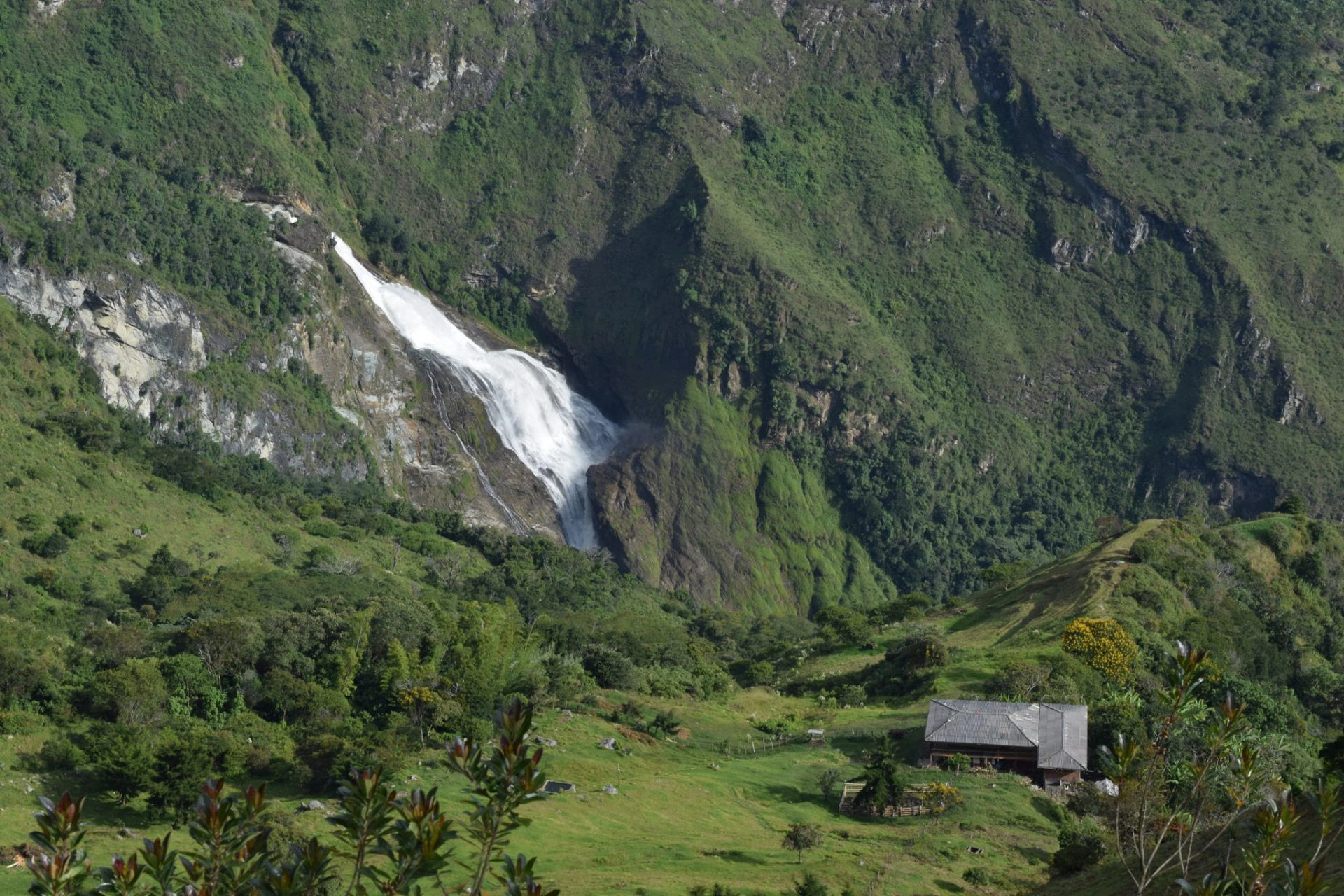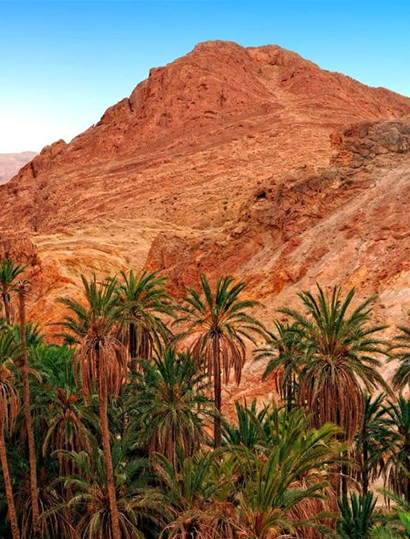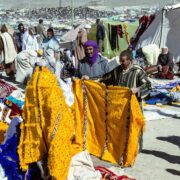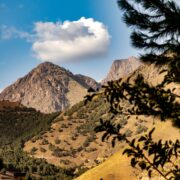
Staying with a Mountain Family in Algeria: An Unforgettable Berber Experience
When I received an invitation to stay with a mountain family in Algeria, nestled high in the Atlas peaks at over 2,000 meters, I knew this would be something special. The rugged topology of these ancient mountains has allowed their inhabitants to preserve millennia-old traditions almost intact, creating a living museum of Berber culture that few outsiders ever witness.
Arriving in the Heart of the Atlas Mountains
The journey to reach this remote mountain family in Algeria took us through winding paths and steep terrain. As we approached the village, I felt like I was stepping back in time. The grandmother who would host us was born right here, at the summit of these mountains, and her home told the story of generations who had called this place home.
The house itself was breathtaking – traditional paintings adorned the walls, and the architecture spoke of centuries of adaptation to mountain life. This wasn’t just accommodation; it was an invitation into a way of life that has endured for thousands of years.
The Warmth of Berber Hospitality
What struck me most about staying with this mountain family in Algeria was the immediate warmth of their welcome. Despite language barriers, the grandmother’s smile and gestures spoke volumes. She insisted I wear traditional Berber clothing – a beautiful robe with an ornate belt that the women wear daily, not just for special occasions.
“Tanemmirt” – thank you in Kabyle – became one of my first words as I tried to express my gratitude for their incredible hospitality. The grandmother’s eyes lit up when I attempted to speak her language, and I realized this was more than tourism; it was cultural exchange at its most authentic.
Life in the Mountain Gardens
One of the most remarkable aspects of staying with this mountain family in Algeria was discovering their incredible garden. A five-minute walk from the village led us down a path to the river, where the family maintained a rich agricultural paradise.
The diversity was astounding: pomegranates bursting with ruby seeds, oranges and mandarines hanging heavy on branches, grape vines, olive trees, apple and cherry trees. The grandmother explained that olives were brought to this region by the Phoenicians from Palestine over 3,000 years ago – a testament to how the Mediterranean connected rather than separated cultures.
Traditional Farming Wisdom
Watching the grandmother work her land revealed generations of agricultural knowledge. She taught me how to properly harvest olives, explaining that it takes many kilograms to produce just one liter of olive oil. Her philosophy was remarkable – she spoke of the land with reverence, understanding that her family’s survival depended on this delicate relationship with nature.
The physical demands of mountain life became clear as we climbed back up the steep paths. “This is daily exercise,” she laughed, showing a resilience that comes from a lifetime of mountain living.
Evening Traditions and Ancient Crafts
As the call to prayer echoed through the valley at sunset, our mountain family in Algeria began their evening routine. The grandmother rose at 5 AM for prayer, then went straight to the fields – a rhythm that has governed mountain life for centuries.
That evening, I witnessed something extraordinary: the grandmother weaving traditional burnous (white wool cloaks) on her loom. This ancient craft, passed down through generations, produced the flowing white garments that Berber men have worn for centuries. Seeing her work the loom by hand, I imagined how magnificent the villages must have looked when everyone wore these traditional robes.
Culinary Traditions and Mountain Flavors
The kitchen became my classroom as I learned to prepare traditional mountain cuisine. Our mountain family in Algeria maintained food traditions that connected them to their ancestors. We ground wheat by hand using a stone mill for 45 minutes – exhausting work that ensured not a single grain was wasted.
The grandmother patiently taught me to make couscous from scratch, trusting me with increasingly complex tasks as I proved my dedication to learning. The ingredients came directly from their garden: fresh herbs, vegetables, and spices that had been cultivated using methods passed down through generations.
The Art of Traditional Cooking
One memorable moment came when the grandmother handed me different peppers to add to our dish. The first day’s peppers were mild, but she tested my commitment by introducing spicier varieties as my confidence grew. This wasn’t just cooking – it was an initiation into the nuances of Berber cuisine.
Mountain Life and Daily Rhythms
Living with this mountain family in Algeria revealed the profound connection between daily life and natural cycles. The grandmother’s day began before dawn with prayer, followed immediately by work in the fields. There was no separation between spiritual life and practical survival – everything was interconnected.
The evening brought community gathering, where neighbors would visit and share stories. The warmth of these interactions transcended language barriers, showing how human connection remains universal despite cultural differences.
Preserving Ancient Ways
What makes staying with a mountain family in Algeria so special is witnessing how traditional ways of life persist in an increasingly modern world. The grandmother’s knowledge encompassed everything from weather patterns to plant medicine – she prepared herbal teas from garden herbs that could treat everything from colds to more serious ailments.
Her expertise in traditional crafts, farming techniques, and food preservation represented a living library of knowledge that many cultures have lost. Watching her work, I understood why these mountain communities have survived for millennia – they’ve mastered the art of living in harmony with their environment.
Cultural Connections Across Time
The experience of staying with this mountain family in Algeria highlighted how North African mountain cultures share common threads despite political borders. The traditions I witnessed – from architectural styles to agricultural methods – echo throughout the Atlas Mountains, whether in Algeria, Morocco, or Tunisia.
The grandmother’s stories about historical changes, including references to French colonial period when “the French burned the trees,” provided insight into how these communities have endured various external pressures while maintaining their cultural identity.
Modern Challenges and Enduring Traditions
Despite the challenges of mountain life, our mountain family in Algeria maintained remarkable optimism and resilience. The physical demands of their lifestyle – daily climbs up steep paths, manual labor in the fields, traditional food preparation – would exhaust most modern visitors, yet they approached these tasks with joy and pride.
The grandmother’s ability to balance tradition with practical adaptation showed how these communities navigate between preserving their heritage and meeting contemporary needs. She welcomed technology like mobile phones while maintaining traditional crafts and customs.
The Gift of Authentic Experience
My time with this mountain family in Algeria transformed my understanding of North African culture. This wasn’t a tourist experience – it was an invitation into a way of life that few outsiders ever witness. The grandmother’s generosity in sharing her knowledge, home, and traditions created memories that will last a lifetime.
The emotional farewell, with promises to return and continued invitations to visit, showed how these connections transcend cultural boundaries. “You’re welcome here,” she said, “you’re family now.”
Planning Your Own Mountain Experience
For travelers seeking authentic cultural experiences, staying with a mountain family in Algeria offers unparalleled insights into Berber life. However, such opportunities require careful planning, cultural sensitivity, and openness to stepping far outside your comfort zone.
These experiences aren’t about luxury accommodations or typical tourist activities. They’re about human connection, cultural exchange, and the privilege of witnessing traditions that have survived for thousands of years.
Table of Contents

Toubkal




